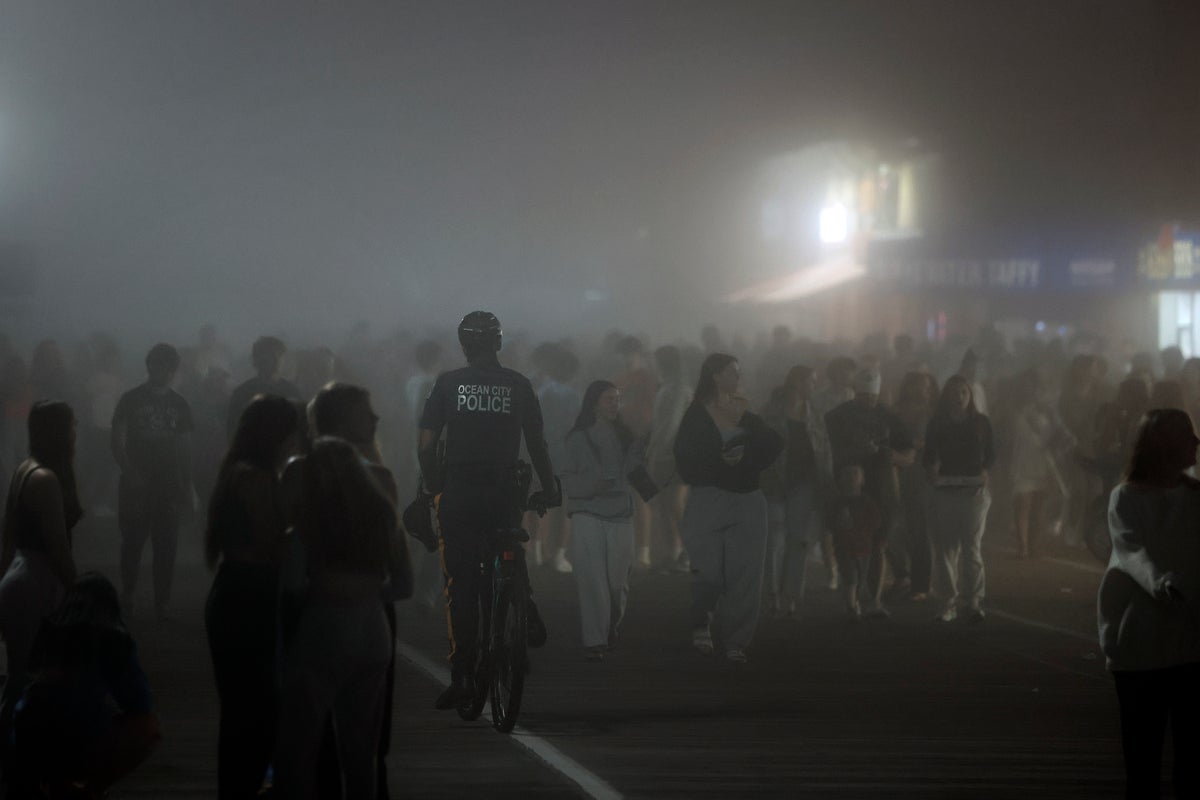
Parents should be held civilly or criminally responsible for the actions of their children that create disturbances or damage in public places, a group of New Jersey police chiefs and Republican lawmakers said Wednesday during a forum held after a second consecutive year of disturbances at some Jersey Shore boardwalks over Memorial Day weekend.
The disturbances included the stabbing of a teenager in Ocean City, and waves of unruly young people that prompted the city of Wildwood to shut down its boardwalk overnight.
The panel consisted solely of Republican state and local legislators, whose party has blamed juvenile justice reforms enacted in recent years under the administration of Democratic Gov. Phil Murphy for creating an atmosphere of lawlessness and disrespect for law enforcement among teens and young adults who feel there are no consequences for their behavior.
The changes included restrictions on what officers could say or do to juveniles suspected of underage drinking or marijuana use.
State Republicans did not respond to messages asking which, if any, Democratic lawmakers were invited to participate in the online forum.
Democrats said the reforms were necessary to keep young people out of the criminal justice system. But numerous law enforcement officials and the statewide police union say the measures have handcuffed officers in dealing with unruly young people.
“The juveniles and their parents should be held accountable,” said Ocean City Police Chief William Campbell. “The entire juvenile justice system needs to be reformed.”
Campbell cited a recent instance in which a disruptive young person was taken into custody and held at the police station while his parents were called, a tactic recommended under the juvenile reforms in lieu of arrests in some situations. Six hours later, the youth's parents still had not come to the station, so Ocean City police contacted police in the youth's hometown, who went there to speak with the parents.
“The mother was annoyed that she had to come to Ocean City,” Campbell said. “You tell me she should not be held accountable.”
The governor's office and the attorney general's office did not immediately respond to requests for comment Wednesday. A spokeswoman for the leadership of the Democrat-controlled state Assembly declined comment, while a Senate counterpart did not respond to a request for comment.
Wildwood Police Chief Joseph Murphy said New Jersey's juvenile justice reforms “seem to not be working.”
“We are not holding these kids accountable, and it's not rehabilitating these kids,” he said.
At a minimum, he said, diversionary programs designed as an alternative to criminal prosecution for young offenders should take longer than 24 to 36 hours to complete. And issuing warnings to young people is not practical when there are groups of 300 or more people creating disturbances, he said.
Sen. Michael Testa said the Jersey Shore remains safe for visitors, but he worries that hard-won reputation could be lost if vacationers no longer think of the area as family-friendly.
“They shouldn't be thinking of unruly behavior, clouds of weed smoke they have to bring their children through,” he said.
Assemblyman Don Guardian, the former mayor of Atlantic City, said he was walking on the city's Boardwalk a few days ago when a group of 80 loud, disruptive young people were blocking the walkway.
When a police car arrived, Guardian said, “they spit on the car. They mooned (the officers) and gave them the finger.”
Wildwood said the city was forced to close its boardwalk overnight on the Sunday of Memorial Day weekend when it feared it was losing control of the situation and was unable to respond to a cascade of calls for help.
New Jersey Attorney General Matthew Platkin blamed Wildwood for not having enough officers assigned to patrol its boardwalk. But Mayor Ernest Troiano Jr. said there were 40 police officers deployed there.
“When you have to put 40 police officers on the boardwalk for 26 blocks, that speaks volumes,” he said.
Republicans have introduced numerous bills in the aftermath of the disturbances, including ones that would allow municipalities to create alcohol and cannabis-free zones, impose traffic and other restrictions during large “pop-up parties,” and increase penalties for assaults on police officers or first responders.







